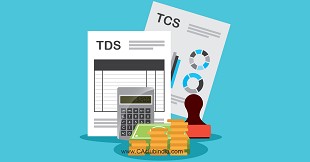Income Tax Articles
Taxation of Cryptocurrencies
Gursimaran Singh Rakhroy 27 July 2021 at 09:07The current dilemma faced by the government authorities is to come up with an efficient way of taxing cryptocurrencies, which in turn puts the crypto investor community in a jeopardy.
An Insight into Glitches in New Income Tax Portal 2.0 and Solutions
Vaibhav Singh 26 July 2021 at 09:32Since its launch, the new e-filing portal has been prone to numerous glitches. Such glitches have restricted taxpayers from carrying out any tax-related work and any business transaction which is subject to tax.
Know 10 tax benefits for the amount spent or invested on Children
Tarun Kumar Madaan 26 July 2021 at 09:32Parents don't think of tax benefits while spending money on their children, however, much of their spending on the children are also eligible for tax deductions.
Prevention Of Money Laundering Act, 2002 | A Brief Analysis
CA Ranganatha Achar K 24 July 2021 at 09:38Money laundering, in the simplest of senses, is defined as a means or process by which proceeds from criminal activities are disguised in order to hide their illegal origin.
How to File an ITR for FY 2020-21 (AY 2021-22)?
Aishna Kukreja 22 July 2021 at 15:54Filing of Income Tax Return is a way of declaring the amount of income earned and taxes paid thereupon to the Government. In this article, we will uncover two ways to file an ITR i.e. Online and Offline.
How to Respond to Assessment and Reassessment Notice under Section 148 of the Income Tax Act?
CA Sapna Ghelani 22 July 2021 at 14:16The notice under section 148 could be issued within a period of 16 years from the end of relevant AY in case the income that has escaped assessment relates to assets located outside India.
Who Should File an Income Tax Return?
Neethi V. Kannanth 22 July 2021 at 09:17The Income Tax Act provides that a certain category of persons should compulsorily file their Income Tax returns every year within the due date specified. Let us discuss the same through this article.
Compliance Check Functionality for Section 206AB & 206CCA
Ishita Ramani 22 July 2021 at 09:17A new tax rule relating to TDS and TCS has come into force from 01.07.2021 under which, taxpayers who have not filed their ITRs for the past two FYs shall have to pay a higher tax.
In-depth analysis of Section 115BAC & Form 10-IE
CS Tanveer Singh Saluja 21 July 2021 at 12:13The introduction of a new tax regime is the biggest development and point of confusion for taxpayers. The FM announced a new set of tax slab rates for individuals, HUFs and co-operative societies.
Relaxation in filing of form 15CA & 15CB
CS Tanveer Singh Saluja 21 July 2021 at 08:52CBDT has granted relaxation in the filing of forms 15CA & 15CB in view of the difficulties faced by the taxpayers in filing the said forms on the new Income Tax portal. The same can now be filed till 15th August 2021.
Popular Articles
- TDS Rate Chart For Tax Year 2026-27: With Revised Section Codes in Challans
- Revised Return Due Date Extension
- Interest Computation Changes under GST (Effective from January 2026)
- Tax Deduction Rules for Employee Contributions From April 2026
- TDS and TCS: The New Shields and Arrows of the Taxpayer
- Tax Calculation Slabs For FY 2025-26 (AY 26-27)
- Comprehensive Guide to Statutory, Tax & Regulatory Compliances for Hotels
- Section 144C Time-Limit Finally Clarified: No More Litigation on Draft vs Final Assessment Deadlines
Trending Online Classes
-
DT & Audit (Exam Oriented Fastrack Batch) - For May 26 Exams and onwards Full English
 CA Bhanwar Borana & CA Shubham Keswani
CA Bhanwar Borana & CA Shubham Keswani -
IDT LIVE Exam Oriented Batch | May 2026, Sept 2026 & Jan 2027
 CA Arpita Tulsyan
CA Arpita Tulsyan













 CAclubindia
CAclubindia
